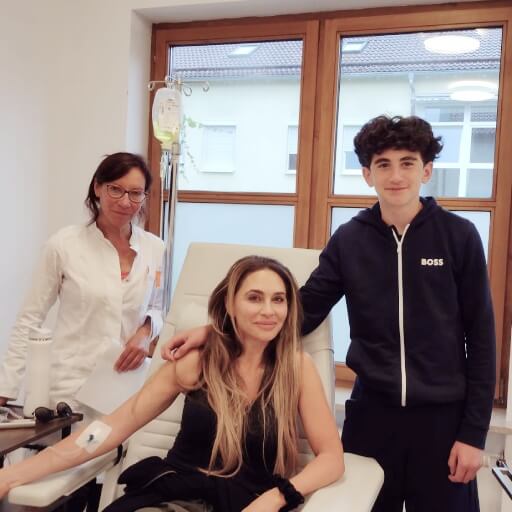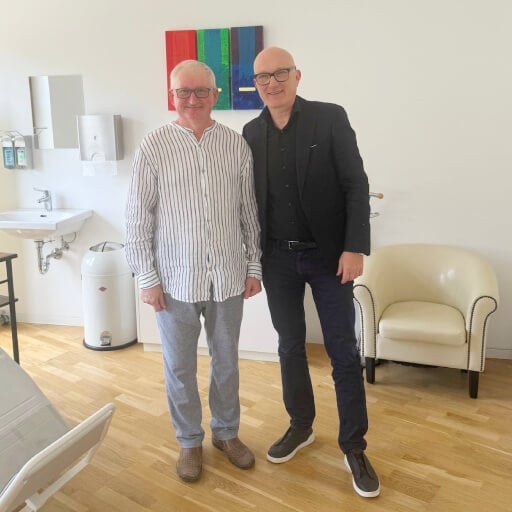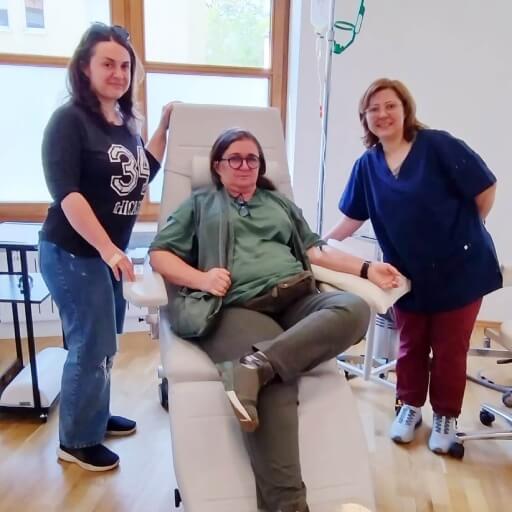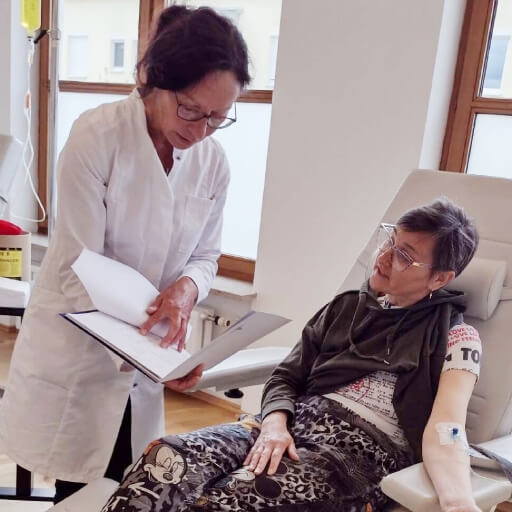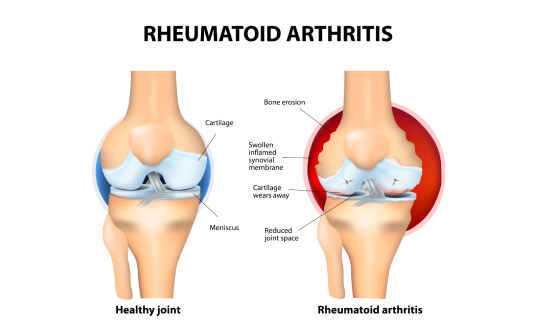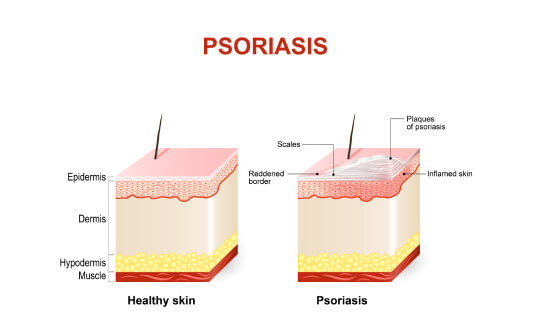Аутоиммунные заболевания – это группа хронических болезней, при которых иммунная система ошибочно атакует собственные здоровые клетки и ткани организма. Такой сбой в работе иммунной системы приводит к хроническому воспалительному процессу, повреждению органов и системным осложнениям. Всего существует более 80 аутоиммунных заболеваний, включая ревматоидный артрит, рассеянный склероз, системную красную волчанку, болезнь Крона и язвенный колит. Многие из этих болезней могут серьезно ухудшить качество жизни человека [1].
По оценкам, аутоиммунные заболевания поражают 5-10% населения во всем мире, причем почти 80% этих патологий диагностируется именно у женщин [2]. Только в Соединенных Штатах более 24 миллионов человек живут с аутоиммунными заболеваниями [3], и их распространенность неуклонно растет. Эти заболевания являются одной из основных причин хронических патологий и длительной инвалидности.
В традиционных схемах лечения главная роль отводится терапии иммуносупрессивными препаратами и кортикостероидами: они помогают временно облегчить симптомы, но часто вызывают серьезные побочные эффекты и не способны остановить прогрессирование болезни. Более того, длительная иммуносупрессивная терапия способствует повышению восприимчивость к инфекционным заболеваниям и раку [4].
В последние годы более безопасным альтернативным вариантом лечения считается иммунотерапия аутоиммунных состояний. В частности, терапия дендритными клетками выделяется своей уникальной способностью модулировать иммунный ответ, а не подавлять его. Способствуя иммунологической толерантности и корректируя патологический процесс самораспознавания, лечение дендритными клетками потенциально позволяет достичь длительной ремиссии без ущерба для иммунной защиты.
Что такое дендритные клетки
Дендритные клетки являются важнейшей составляющей частью иммунной системы. Эти профессиональные антигенпрезентирующие клетки (АПК) выполняют функцию посредников между врожденным и адаптивным иммунитетом. Их основная задача состоит в захвате, обработке и презентации чужеродных или собственных антигенов Т-клеткам, за счет чего происходит запуск иммунного ответа или иммунологической толерантности – в зависимости от конкретной ситуации [5].
В здоровом организме дендритные клетки помогают поддерживать иммунный гомеостаз, различая вредные патогены и собственные ткани организма. Эта функция критически важна для предотвращения аутоиммунных реакций, при которых иммунная система ошибочно атакует собственные клетки. Нарушение функции или дисбаланс в работе дендритных клеток может привести к снижению толерантности и развитию аутоиммунных заболеваний, таких как системная красная волчанка, ревматоидный артрит, рассеянный склероз [1, 5].
Дендритные клетки представляют особую ценность в иммунотерапии благодаря своим уникальным функциям:
- Иммуноактивации – стимуляции Т-клеток к атаке чужеродных угроз
- Иммунорегуляции – повышению толерантности к собственным тканям организма
При иммуномодуляции дендритными клетками для индукции иммунной толерантности используются специально подготовленные дендритные клетки, которые фактически «обучают» иммунную систему прекращать атаку на здоровые клетки [5].
Как работает терапия дендритными клетками
Терапия дендритными клетками для лечения аутоиммунных заболеваний – это передовая форма иммунотерапии, направленная на восстановление иммунологической толерантности, а не на подавление иммунной активности. Этот инновационный подход основан на использовании собственных дендритных клеток пациента: сначала осуществляется их забор, после чего полученные клетки модифицируются вне организма, чтобы стать «толерогенными» – способными «переобучить» иммунную систему не атаковать собственные ткани [6] .
Лечение аутоиммунных заболеваний дендритными клетками проходит в несколько этапов:
- Забор клеток – из крови пациента выделяются моноциты.
- Трансформация клеток – в специализированной лаборатории на эти клетки воздействуют факторами роста и цитокинами, что стимулирует их дифференцировку в дендритные клетки.
- Воздействие антигенами – на этом этапе выращенные в лаборатории дендритные клетки нагружаются специфическими для выявленного у пациента заболевания аутоантигенами (белками или пептидами из собственных тканей больного).
- Повторное введение дендритных клеток пациенту – полученные модифицированные дендритные клетки вводятся в организм пациента, где они взаимодействуют с Т-клетками, способствуя формированию иммунной толерантности.
Другими словами, этот терапевтический метод «обучает» иммунную систему «игнорировать» собственные антигены, которые она когда-то ошибочно идентифицировала как угрозу, значительно снижая аутоиммунные атаки [6].
По сравнению с традиционными иммунодепрессантами, которые, как уже упоминалось выше, в значительной степени подавляют иммунный ответ, а также повышают риск развития инфекционных заболеваний и злокачественных новообразований, терапия дендритными клетками обладает рядом преимуществ:
- Таргетная иммуномодуляция
- Низкий профиль побочных эффектов
- Сохранение общей иммунной функции
- Потенциальная возможность достижения длительной ремиссии
Этот персонализированный антиген-специфический подход разработан специально для лечения таких аутоиммунных заболеваний, как ревматоидный артрит, рассеянный склероз и системная красная волчанка. В настоящее время он считается одним из наиболее прогрессивных методов борьбы с аутоиммунными заболеваниями, способных таргетно воздействовать на патологические процессы.

Аутоиммунные заболевания, при которых проводится лечение дендритными клетками
Терапия дендритными клетками – это персонализированный метод лечения целого ряда хронических аутоиммунных заболеваний с учетом специфики каждого из них. За счет восстановления иммунологической толерантности данный терапевтический подход помогает устранить первопричину недуга, а не только его симптомы. Ниже приведены пять основных аутоиммунных заболеваний, при которых иммунотерапия дендритными клетками демонстрирует многообещающие терапевтические результаты и приводит к положительным изменениям в состоянии пациента.
Ревматоидный артрит
Ревматоидный артрит – системное аутоиммунное заболевание, преимущественно поражающее суставы. Патология провоцирует развитие хронического болевого синдрома, отеков и прогрессирующей деформации суставов. Недуг поражает примерно 1% населения мира, чаще всего женщин, вызывая серьезные нарушения подвижности и снижая качество жизни [7].
У пациентов с ревматоидным артритом иммунная система ошибочно атакует синовиальную оболочку суставов. При проведении терапии дендритными клетками больному вводят толерогенные дендритные клетки, которые нагружают аутоантигенами, такими как коллаген II типа, для перепрограммирования Т-клеток и остановки иммунной атаки. Результаты клинических испытаний демонстрируют, что эта форма терапии подавляет активность болезни и способствует снижению зависимости от традиционных иммунодепрессантов [8].
Другими словами, использование дендритных клеток в лечении ревматоидного артрита представляет собой тактику, направленную на модификацию болезни, при которой приоритетом является долгосрочная коррекция иммунной функции, а не краткосрочное облегчение симптоматики.
Рассеянный склероз
Рассеянный склероз (РС) – хроническое воспалительное заболевание, при котором собственная иммунная система пациента повреждает защитную миелиновую оболочку, окружающую нервные волокна. Рассеянным склерозом страдают более 2,8 миллиона человек во всем мире, и его распространенность продолжает расти, особенно среди молодых людей [9].
У пациентов с рассеянным склерозом терапия дендритными клетками направлена на индукцию антиген-специфической иммунологической толерантности к миелиновым белкам, например, миелин-олигодендроглиоцитарному гликопротеину (MOG) или основному белку миелина (MBP). В ходе недавних клинических исследований фазы I было установлено, что терапия толерогенными дендритными клетками безопасна и хорошо переносится пациентами, при этом она способствует снижению уровня провоспалительных цитокинов и частоты развития рецидивов [10].
Результаты исследований показывают, что в отличие от стандартных методов лечения данный вид терапии при рассеянном склерозе помогает замедлить прогрессирование болезни, не ослабляя при этом общую функцию иммунной системы.
Болезнь Крона и язвенный колит
Болезнь Крона и язвенный колит – две основные формы воспалительных заболеваний кишечника (ВЗК), характеризующиеся развитием хронического воспалительного процесса в органах желудочно-кишечного тракта. В совокупности обе эти болезни поражают более 10 миллионов человек во всем мире, причем сейчас наблюдается рост их распространенности в развитых странах [11].
При ВЗК иммунная система ошибочно повреждает микробиоту и ткани кишечника, что приводит к развитию язв, диареи, потери веса и болевого синдрома. Дендритные клетки играют центральную роль в иммунной регуляции кишечника, а их дисфункция связана с патогенезом ВЗК. Терапия дендритными клетками при болезни Крона и язвенном колите направлена на восстановление иммунологической толерантности слизистой оболочки путем модуляции Т-клеточного ответа в кишечнике.
Результаты пилотных исследований у пациентов с тяжелой формой болезни Крона или язвенного колита показали, что введение аутологичных толерогенных дендритных клеток способствует уменьшению выраженности воспалительного процесса и заживлению слизистой оболочки, особенно если у больного наблюдается резистентность к традиционным биологическим препаратам [12].
Таким образом, этот передовой вид терапии для борьбы с аутоиммунными заболеваниями потенциально может привести к достижению длительной ремиссии и улучшению качества жизни при рефрактерных формах ВЗК.
Псориаз
Псориаз – хроническое аутоиммунное заболевание кожи, от которого страдают около 125 миллионов человек во всем мире, или около 2-3% населения [13]. Причиной развития болезни является иммуноопосредованная избыточная выработка клеток кожи, что приводит к появлению шелушащихся бляшек, покраснению и зуду.
Нарушенная регуляция дендритных клеток играет центральную роль в патогенезе псориаза, поскольку они вызывают чрезмерную активацию Т-клеток в коже. Стремясь восстановить баланс в иммунной системе, исследователи используют модифицированные дендритные клетки для подавления этой аномальной сигнализации.
Применение иммунотерапии дендритными клетками для лечения псориаза пока находится на ранней стадии развития, но метод уже продемонстрировал многообещающие результаты в отношении снижения тяжести поражений кожи и уменьшении частоты рецидивов после прекращения местного или системного лечения [14].
Системная красная волчанка
Системная красная волчанка (СКВ) – сложное аутоиммунное заболевание, которое может поражать кожу, суставы, почки, сердце, легкие и головной мозг. Им страдают более 5 миллионов человек во всем мире, причем 90% пациентов – женщины, у которых болезнь зачастую диагностируется в репродуктивном возрасте [15].
При волчанке наблюдается чрезмерная презентация аутоантигенов аномальными дендритными клетками, что приводит к широкомасштабной активации иммунной системы и развитию воспалительного процесса. Результаты клинических исследований показали, что толерогенные дендритные клетки способны подавлять эти реакции за счет перепрограммирования аутореактивных Т-клеток и снижения выработки аутоантител [16].
Проще говоря, лечение системной красной волчанки терапией дендритными клетками представляет собой метод восстановления иммунологической толерантности, потенциально снижающий частоту периодов обострения болезни и риск долгосрочного повреждения органов.
Клинические данные и результаты исследований
Разработка терапии дендритными клетками открыла новые возможности для лечения системных аутоиммунных заболеваний. Этот инновационный подход появился на свет благодаря десятилетиям исследований в области иммунологии, включая открытия, удостоенные Нобелевской премии, которые в корне изменили наше понимание иммунной системы.
В 2011 году доктору Ральфу Штейнману была посмертно присуждена Нобелевская премия по физиологии и медицине за открытие дендритных клеток и их важнейшей роли в адаптивном иммунитете. Его работа заложила основу для использования дендритных клеток как в иммунотерапии рака, так и в области иммуномодуляции при аутоиммунных заболеваниях.
Как отмечалось выше, последние результаты клинических исследований предоставляют все больше доказательств эффективности применения толерогенных дендритных клеток в лечении аутоиммунных заболеваний. Более того, результаты исследований были весьма положительными и в отношении безопасности этого терапевтического подхода:
- Не было зарегистрировано никаких серьезных побочных эффектов
- Минимальный риск развития инфекционных поражений
- Обеспечение иммуномодуляции без системной иммуносупрессии
Помимо этих результатов, можно выделить ряд общих преимуществ при различных аутоиммунных заболеваниях, в том числе болезни Крона, язвенном колите, псориазе, рассеянном склерозе и системной красной волчанке. Хотя каждая болезнь поражает разные ткани и иммунные пути, при проведении терапии дендритными клетками отмечаются очевидные терапевтические преимущества:
- Уменьшение выраженности системного воспаления и снижение уровня специфических для данного заболевания биомаркеров
- Повышение иммунологической толерантности за счет антиген-специфического перепрограммирования Т-клеток
- Снижение частоты и тяжести обострений болезни
- Уменьшение зависимости от приема кортикостероидов или иммуносупрессивных препаратов
- Сохранение защитных иммунных функций
Эти результаты наглядно демонстрируют универсальность и безопасность иммунотерапии дендритными клетками в качестве таргетного персонализированного терапевтического подхода. В настоящее время исследования в данной области продолжаются, что дает возможность применять данный метод для лечения более широкого спектра заболеваний. Таким образом, теперь у пациентов есть надежда на достижение стойкой ремиссии и улучшения качества жизни.
Где пройти терапию дендритными клетками
В настоящее время доступ к терапии дендритными клетками во всем мире по-прежнему ограничен, поскольку это новаторский и узкоспециализированный метод лечения. Клинические испытания в этой сфере проводятся в США, Японии и некоторых странах ЕС, но именно Германия стала наиболее популярным направлением для пациентов в поиске иммунотерапии с научно доказанной эффективностью.
Германия, которая славится своей превосходной медицинской инфраструктурой и строгими клиническими стандартами, входит в число лидеров в сфере иммунологических инноваций. Во многих клиниках Германии предлагаются протоколы лечения дендритными клетками, которые пока не получили широкого распространения в других странах, особенно для пациентов со сложными или резистентными к терапии аутоиммунными заболеваниями.
Пациенты со всего мира выбирают Германию не только за доступность в этой стране инновационных методов лечения, но и за комплексную модель обслуживания в клиниках, основанную на персонализированном планировании терапевтической схемы, применении в процессе лечения передовых диагностических возможностей и многоязычной медицинской поддержке. Для желающих получить лечение с применением безопасных и научно обоснованных методов, выступающих в качестве альтернативы традиционной терапии иммунодепрессантами, Германия остается одним из самых авторитетных мировых лидеров в сфере регенеративной и иммуномодулирующей терапии.
Поездка на лечение за границу с Booking Health
Поиск подходящей клиники для лечения аутоиммунных заболеваний – задача не из легких, особенно если за спиной пациента долгие годы борьбы с симптомами болезни, многочисленные попытки лечения с помощью традиционных терапевтических подходов и противоречивые медицинские рекомендации. К сожалению, в таких ситуациях даже при доступности передовых видов терапии многие выбирают довольствоваться лечением по стандартным протоколам. Именно в таких ситуациях на помощь приходит Booking Health.
Booking Health – сертифицированный оператор медицинского туризма с более чем 12-летним опытом в данной сфере. Компания помогает пациентам получить доступ к лечению у ведущих специалистов в Германии, которые специализируются на проведении передовых и инновационных лечебных процедур, в том числе терапии дендритными клетками. Мы поможем вам принять взвешенное решение: вам будет предоставлена полностью персонализированная программа лечения, соответствующая вашему конкретному диагнозу, стадии развития заболевания и терапевтическим целям.
Мы предлагаем:
- Экспертную оценку и анализ ваших медицинских заключений
- Составление индивидуальной программы лечения
- Прямую запись на прием в специализированные клиники Германии
- Подготовку и перевод медицинской документации
- Организацию предварительных онлайн-консультаций с немецкими врачами до поездки на лечение
- Координацию поездки в другую страну, помощь в оформлении визы и бронирование номера в отеле или апартаментов для проживания на период терапии
- Поддержку персонального координатора и переводчика 24/7
- Прозрачную стоимость лечения без скрытых платежей
Терапия дендритными клетками меняет подход к лечению аутоиммунных заболеваний, обеспечивая таргетные и долгосрочные результаты без побочных эффектов, которые неизбежны при приеме традиционных иммунодепрессантов. Активное проведение исследований в этой сфере дает возможность все большему количеству пациентов получить доступ к терапии, которая способна восстановить иммунный баланс и улучшить качество жизни.
Здоровье – одно из наиболее ценных сокровищ, поэтому выбор клиники и метода лечения следует доверять лишь опытным профессионалам с надежной международной репутацией. Booking Health – ваш надежный партнер, который окажет необходимую поддержку на каждом этапе пути к более безопасному и эффективному лечению аутоиммунных заболеваний.
Если вам или вашему близкому человеку нужен более эффективный и индивидуальный подход к лечению аутоиммунного заболевания, не теряйте времени и проконсультируйтесь со специалистами Booking Health уже сегодня. Благодаря сотрудничеству с нами у вас появится реальная возможность получить лечение дендритными клетками в Германии и улучшить свое здоровье.
Дендритные клетки в лечении рака: опыт пациентов Booking Health
Частые вопросы наших пациентов
Отправить запрос на лечениеТерапия дендритными клетками при аутоиммунных заболеваниях – это форма персонализированного лечения. Цель терапии заключается в том, чтобы «переобучить» иммунную систему и остановить ее атаку на собственные клетки организма. В ходе лечения используются дендритные клетки, которые подвергаются специальной модификации в лабораторных условиях. Это способствует повышению иммунологической толерантности, что в итоге помогает уменьшить воспалительный процесс и предотвратить прогрессирование болезни без подавления нормальных иммунных функций.
Да, результаты ранних клинических исследований свидетельствуют о благоприятном профиле безопасности терапии дендритными клетками. Как одна из форм иммунотерапии, она является таргетным методом лечения, что способствует снижению профиля рисков, связанного с традиционной иммуносупрессивной терапией. У большинства пациентов после такого лечения наблюдаются лишь легкие побочные эффекты или же они вовсе отсутствуют, особенно при использовании аутологичных клеток (собственных клеток пациента).
В рамках современных исследований и медицинских программ терапия дендритными клетками применяется для лечение целого ряда аутоиммунных заболеваний, включая ревматоидный артрит, рассеянный склероз, болезнь Крона, язвенный колит, псориаз и системную красную волчанку. Однако в настоящее время продолжается проведение исследований с целью изучения и расширения терапевтического потенциала метода при других хронических аутоиммунных заболеваниях.
В отличие от иммунодепрессантов широкого спектра действия, терапия дендритными клетками воздействует исключительно на иммуномодуляцию, помогая восстановить иммунный баланс, не ослабляя при этом функцию всей иммунной системы. Эта форма иммунотерапии работает за счет стимуляции антиген-специфической толерантности, а не полного подавления иммунных ответов.
В Германии предлагаются одни из наиболее передовых в мире методов лечения дендритными клетками. Эта инновационная терапия проводится в нескольких ведущих немецких клиниках с соблюдение строгих клинических протоколов, поэтому сюда приезжают пациенты со всего мира в поиске персонализированного лечения.
Стоимость передовой терапии аутоиммунных заболеваний дендритными клетками в Германии составляет от 20,000€ до 38,000€ за курс. Стоимость лечения зависит от конкретного типа болезни (например, рассеянный склероз, ревматоидный артрит или волчанка), стадии патологии и необходимого пациенту количества процедур вакцинации.
Выбирайте лечение за рубежом и Вы, несомненно, получите отличный результат!
Авторы:
Статья составлена под редакцией экспертов в области медицины, врачей-специалистов доктора Надежды Иванисовой и доктора Богдана Михальнюка. Для лечения состояний, о которых идет речь в статье, необходимо обратиться к врачу; информация в статье не предназначена для самолечения!
С редакционной политикой, которая отражает наше стремление к точности и прозрачности, можно ознакомиться здесь. Перейдите по ссылке, чтобы ознакомиться с нашими правилами.
Источники:
[1] National Institute of Allergy and Infectious Diseases. Autoimmune Diseases. https://www.niaid.nih.gov/diseases-conditions/autoimmune-diseases
[2] Cureus. The Prevalence of Autoimmune Disorders in Women: A Narrative Review. https://pmc.ncbi.nlm.nih.gov/articles/PMC7292717/
[4] Cureus. Autoimmunity and Cancer: Two Stations on the Same Continuum. https://pmc.ncbi.nlm.nih.gov/articles/PMC10944658/
[5] British Society of Immunology. Dendritic Cells. https://www.immunology.org/public-information/bitesized-immunology/cells/dendritic-cells
[6] Nature Reviews Clinical Oncology. Dendritic Cells as Orchestrators of Anticancer Immunity and Immunotherapy. https://www.nature.com/articles/s41571-024-00859-1
[7] World Health Organization. Rheumatoid Arthritis. https://www.who.int/news-room/fact-sheets/detail/rheumatoid-arthritis
[8] Clinical & Experimental Immunology. Tolerogenic Dendritic Cell Therapy for Rheumatoid Arthritis: Where Are We Now? https://journals.sagepub.com/doi/10.1177/1352458520970841
[9] Multiple Sclerosis Journal. Rising Prevalence of Multiple Sclerosis Worldwide: Insights from the Atlas of MS, Third Edition. https://www.frontiersin.org/journals/oncology/articles/10.3389/fonc.2023.1143578/full
[10] BMJ Open. Tolerogenic Dendritic Cell-Based Treatment for Multiple Sclerosis (MS): A Harmonised Study Protocol for Two Phase I Clinical Trials Comparing Intradermal and Intranodal Cell Administration. https://pmc.ncbi.nlm.nih.gov/articles/PMC6738722/
[11] International Journal of Colorectal Disease. Global, Regional, and National Burden of Inflammatory Bowel Disease, 1990-2021: Insights from the Global Burden of Disease 2021. https://pmc.ncbi.nlm.nih.gov/articles/PMC11380638/
[12] Molecular Nutrition & Food Research. Human Intestinal Dendritic Cells in Inflammatory Bowel Diseases. https://onlinelibrary.wiley.com/doi/10.1002/mnfr.201700931
[13] National Psoriasis Foundation. Psoriasis Statistics. https://www.psoriasis.org/psoriasis-statistics/
[14] Journal of Controlled Release. Dendritic Lipopeptide-Based Transdermal siRNA Delivery Systems for Effective Non-Invasive Therapy in Psoriasis. https://www.sciencedirect.com/science/article/abs/pii/S0168365925001907
[15] Nature Reviews Rheumatology. Global Epidemiology of Systemic Lupus Erythematosus. https://pmc.ncbi.nlm.nih.gov/articles/PMC8982275/
[16] Rheumatology & Autoimmunity. Human CD141+ Dendritic Cells: A Unique Tolerogenic Subset Inducing Immune Tolerance in Systemic Lupus Erythematosus Patients. https://onlinelibrary.wiley.com/doi/10.1002/rai2.12173?msockid=1d5ff35870e466a31fb5e55c71cc67f7
Читайте:
Лечение аутоиммунных заболеваний в Германии
Применение дендритных клеток в лечении псориаза
Дендритные клетки: возможный ключ к лечению язвенного колита
Меню статьи:
- Что такое дендритные клетки
- Как работает терапия дендритными клетками
- Аутоиммунные заболевания, при которых проводится лечение дендритными клетками
- Клинические данные и результаты исследований
- Где пройти терапию дендритными клетками
- Поездка на лечение за границу с Booking Health
- Частые вопросы наших пациентов
Не знаете, с чего начать?
Свяжитесь с Booking Health
